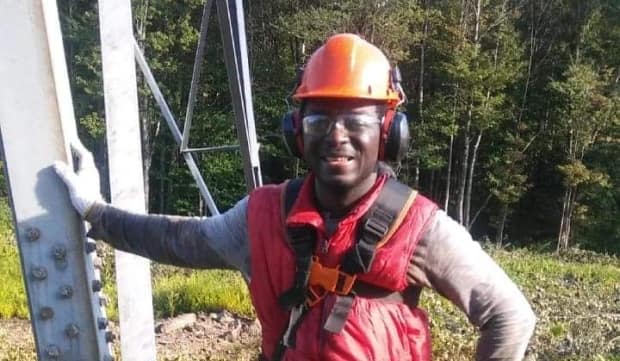Status of migrant who worked in Quebec long-term care homes in jeopardy

Mamadou Konaté, who has lived in Quebec for six years and whose refugee claim process has been marred by setbacks, fears there may no longer be legal recourse to prevent him from being deported, after a crushing federal court judgment.
In the time Konaté has spent in the province, he has felled trees for Hydro-Québec, sorted trash in waste management centres and cleaned the rooms of COVID-positive patients at long-term care homes.
Konaté fled civil war in his home country of Ivory Coast and bounced between refugee camps in neighbouring countries before landing in Canada in February 2016.
"It's unfair. I don't understand anything anymore. I've been here for six years. I've worked the whole time. I just got a new work permit. I don't know what I did wrong," Konaté said over the phone Sunday evening.
When Konaté arrived in Canada, his refugee claim was rejected under a section of the federal Immigration Act, which states that anyone who participated in the overthrowing of a government cannot seek residency in Canada.
"It's basically the clause under which we would make Nelson Mandela inadmissible," immigration lawyer Stewart Istvanffy told CBC last year.
Istvanffy, who represents Konaté, filed a request for the federal government to waive his inadmissibility, as well as a writ to try to force the government to make a decision quickly in his case due to extensive delays.
Because Konaté's refugee claim was rejected, he could be deported before the government rules on his admissibility.

The writ was a bid by Istvanffy for a decision to be made before that could happen, but on June 8 Justice Yvan Roy dismissed the request, saying the lawyer and Konaté did not provide enough reason about why his case should be heard before others.
Returning to Ivory Coast 'dangerous'
Roy also said Konaté had made confusing statements in the past about whether he had been forced to join a movement to overthrow former Ivory Coast president Laurent Gbagbo or not. Konaté says he deserted the movement and went into hiding, and believes he could be killed or tortured in retaliation if he returns to Ivory Coast.
Soon after the decision, Konaté received a notice calling for him to show up at the federal immigration offices in downtown Montreal on Monday morning.
"We're really worried because right now it doesn't seem like there is anything, legally, that could block his deportation," said his friend Amelia Orellana, who helped organize a rally outside the immigration office on Saint-Antoine Street before his appointment.
"It could be extremely dangerous for him to return to Ivory Coast," she added.

The meeting ended up being to fill in paperwork, but Istvanffy says he expects his client could be given a deportation date by this fall if the provincial Immigration Ministry doesn't intervene and grant him temporary resident status.
"Mamadou's a great guy and he belongs in Quebec," Istvanffy said at the rally. "I wish the minister would take the time to do the right thing."
Quebec's Immigration Ministry has previously said it wouldn't intervene because Konaté's file is a federal matter, but Istvanffy says that is misleading because the ministry regularly hands out temporary resident statuses.
A life in Quebec
In February, Konaté spoke with CBC News for a short documentary about immigration detention in Canada.
Konaté has been detained three times at the Immigration Detention Centre in Laval, sometimes for months at a time. Each time, Konaté was taken into custody after showing up for seemingly routine appointments at the Saint-Antoine immigration offices without knowing whether he would end up detained.
"To me, it's illegal to put someone in prison, when they haven't stolen or done anything (wrong)," he said.
WATCH | Mamadou Konaté describes his experience in immigration detention:
In the interview, Konaté described the life he's built in Quebec. He lives in Montreal's quaint Rosemont neighbourhood and works long hours, spending nearly all of his money on fees associated with his immigration file.
But over the years, he's managed to develop strong friendships and a good group of friends, who regularly meet for suppers and weekend activities. He credits a fitness dance group called Djamboola for many of those connections.
Those friends also helped raise the $7,000 caution the CBSA required in 2020 to release him from detention.
"Often, I'm discouraged, but I look at the people around me, my friends," Konaté said. "I'm surrounded by good people who have love for me and tell me I'm not alone."

 Yahoo Movies
Yahoo Movies 
